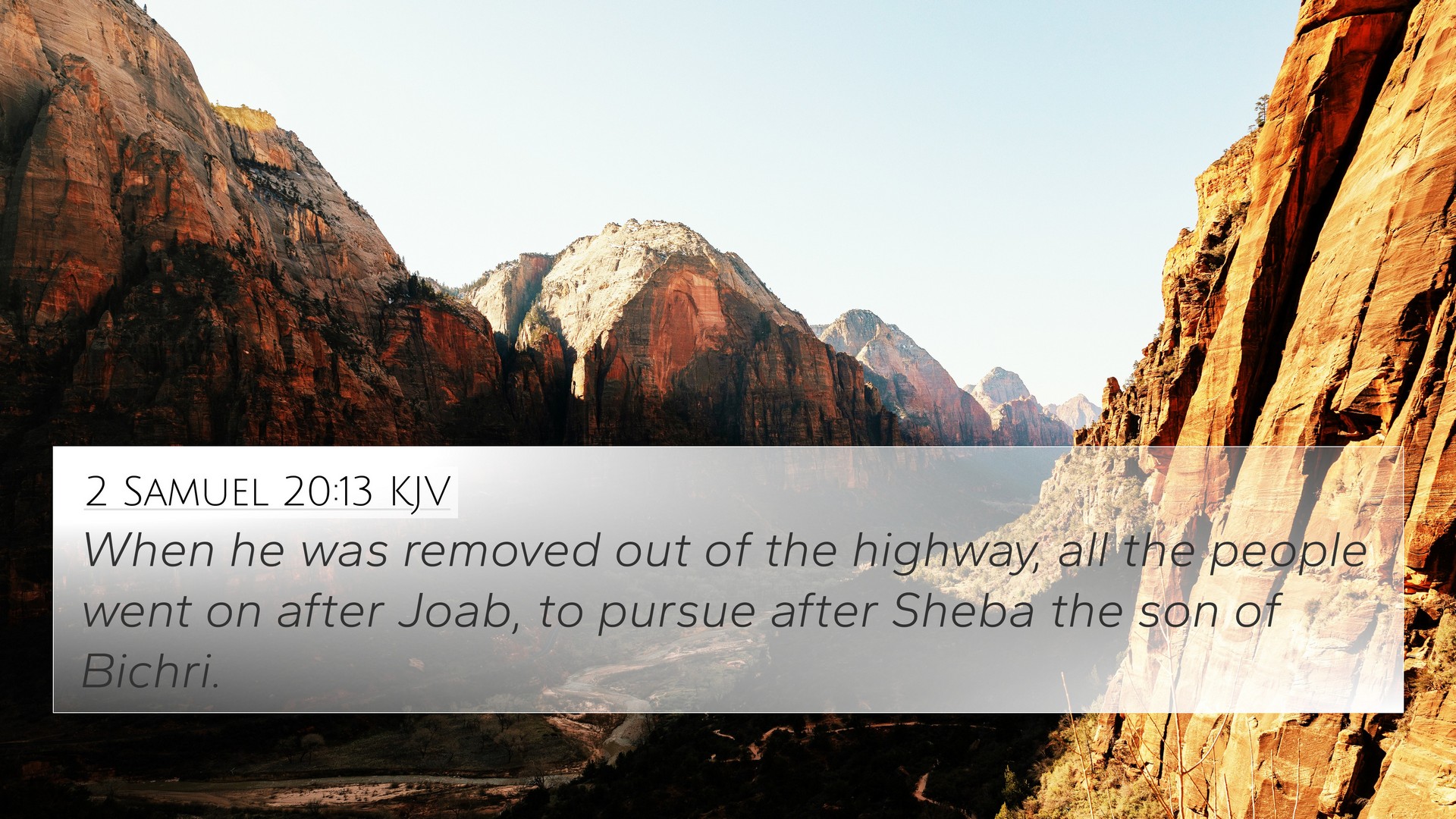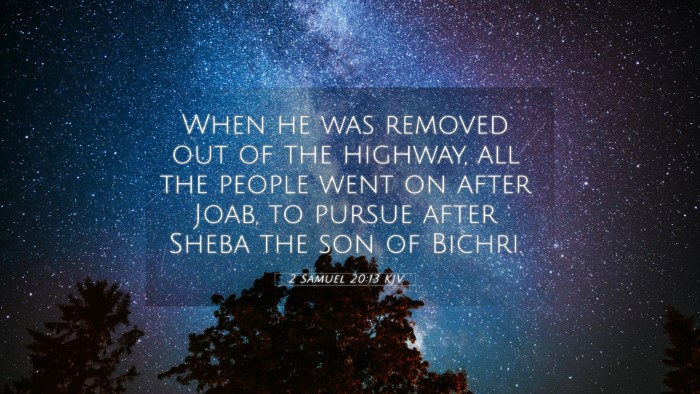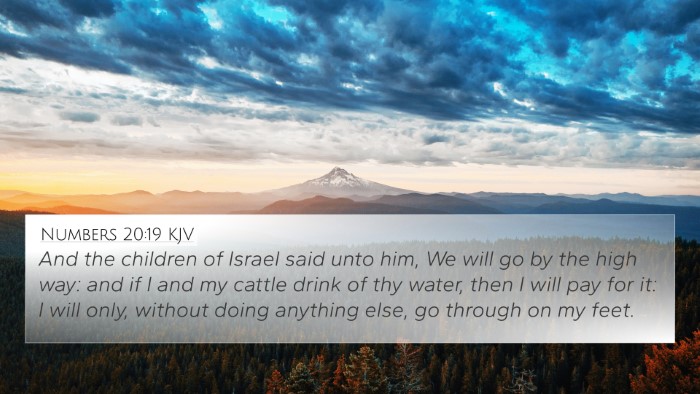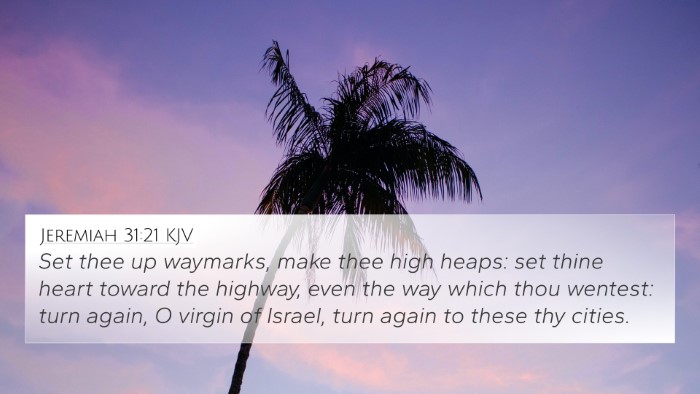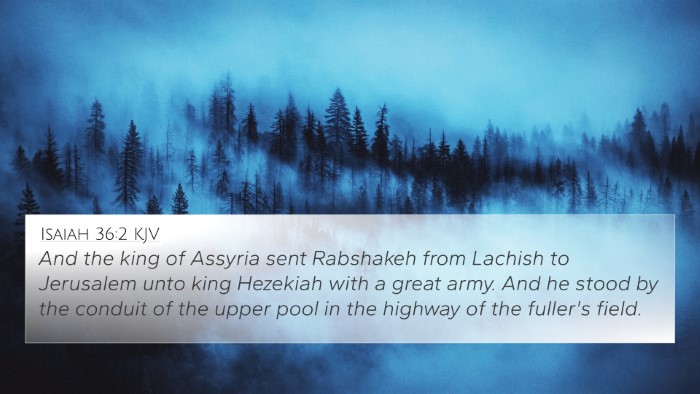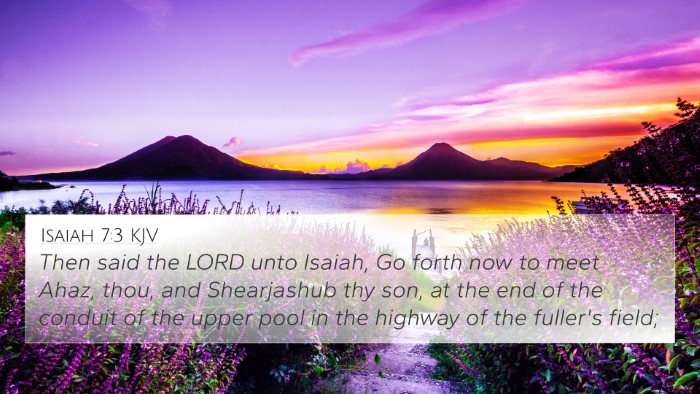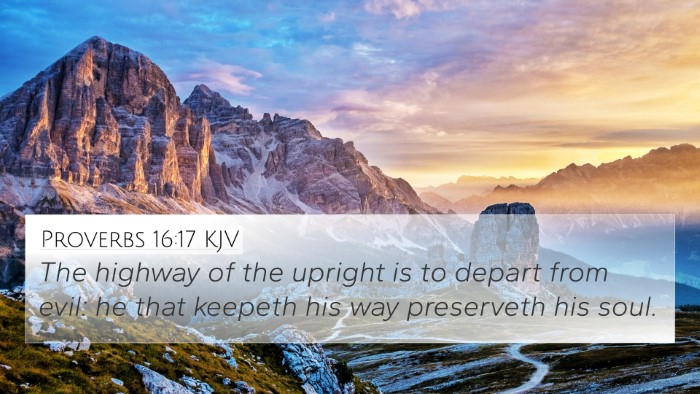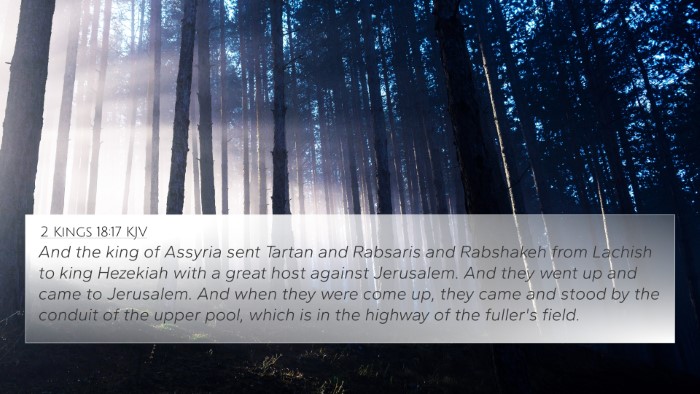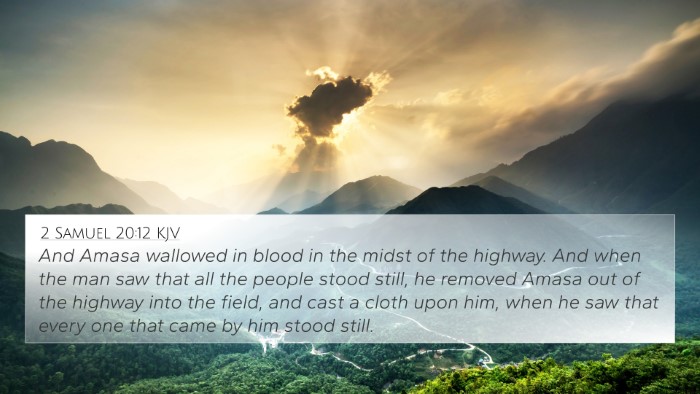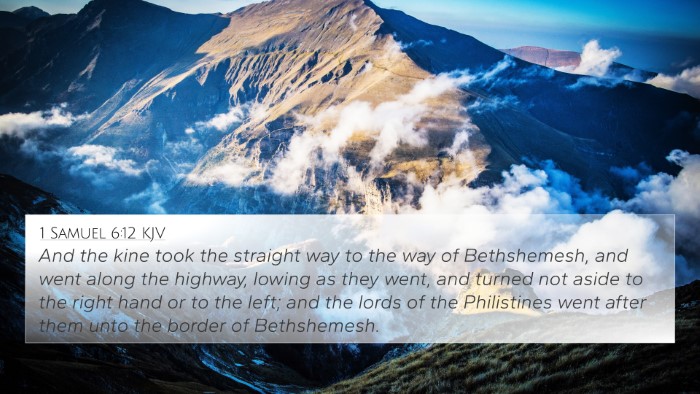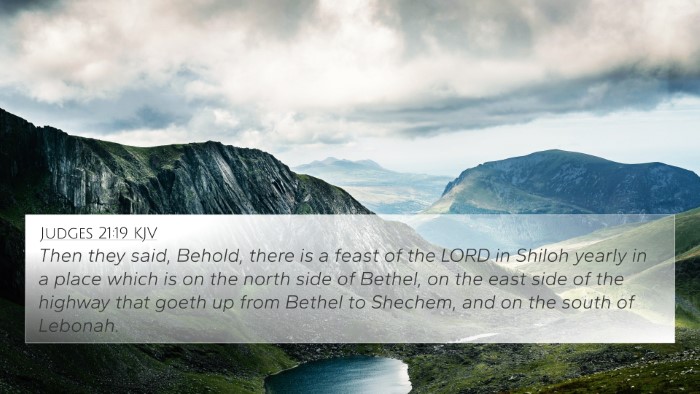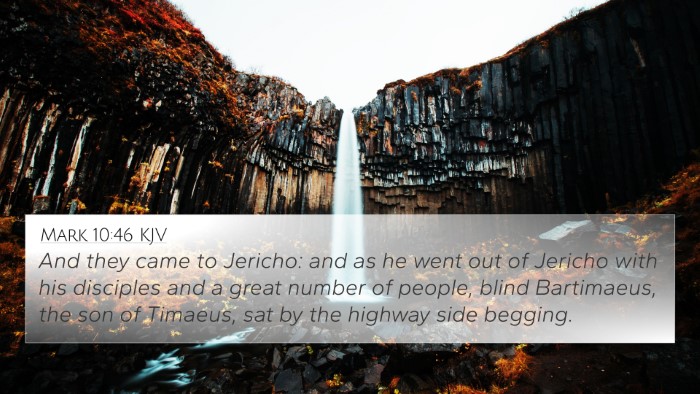Understanding 2 Samuel 20:13
In this verse, we see an intriguing moment in the narrative of King David's reign. After a powerful rebellion led by Sheba, the son of Bichri, the aftermath brings attention to the importance of leadership and accountability within the kingdom of Israel. This analysis will pull insights from various public domain commentaries, offering a combined understanding of the verse.
Verse Context
2 Samuel 20:13 states: "And when he was removed out of the way, all the people went on after Joab, to pursue after Sheba the son of Bichri." This moment follows the death of Amasa, who was appointed by David to replace Joab as the commander of the army. Amasa's death leads to a shift in focus back to Joab, reflecting the chaotic political climate of David's reign.
Commentary Insights
Matthew Henry's Commentary
Matthew Henry emphasizes the themes of leadership and the consequences of decisions made in times of upheaval. Amasa's death signifies the perils of disloyalty and the swift re-establishment of Joab's authority. Henry notes that this shift highlights the transient nature of human leadership and God's overarching plan that prevails despite human failure.
Albert Barnes' Commentary
Albert Barnes discusses the immediate tactical implications of Amasa's death. The removal of Amasa from the scene allowed Joab to quickly regain control. Barnes highlights that this event doesn't just affect military strategy but also sets a precedent for understanding the complicated relationship between political ambition and divine purpose in the unfolding narrative of Israel's history.
Adam Clarke's Commentary
Adam Clarke provides a detailed examination of the text from a structural aspect, highlighting David's shifting political circles. He points out that while Joab was a commander with a controversial reputation, his skill and experience were crucial in urgent situations. Clarke further comments on the necessity of strong leadership amid disorder, suggesting that God’s will is often carried out through even flawed vessels.
Thematic Connections and Cross-References
This single verse opens a dialogue with several other biblical passages that address themes of leadership, conflict, and divine sovereignty. Here are some relevant cross-references:
- 1 Samuel 15:23 - Reflects God's disdain for disobedience and how it leads to leadership changes.
- 1 Kings 2:5-6 - Discusses how Joab's actions led to his ultimate fate at the hands of Solomon.
- 2 Samuel 19:11-15 - A reminder of the political dynamics following Absalom's rebellion and the shifting loyalty within David's court.
- Psalm 75:7 - Speaks to the sovereignty of God in establishing leaders and overturning kingdoms.
- Proverbs 21:1 - Indicates that rulers' hearts are guided by the Lord, even amid chaos.
- Jeremiah 3:15 - Discusses God's intention to give effective leaders as part of His restorative plan.
- Luke 22:25-26 - Jesus’ teaching on the nature of true leadership contrasted with worldly authority.
- Romans 13:1 - Establishes the biblical principle that all authorities are instituted by God.
- James 3:17 - Emphasizes the wisdom that is peaceable and leads to good governance.
Comparative Analysis
By exploring connections between these scriptures, we gain a greater understanding of how leadership and morality interact throughout biblical history. The cross-references provide a rich context in which to understand how God's purposes are fulfilled through various leaders, behaviors, and situations.
Tools for Bible Cross-Referencing
For those interested in further exploring the interconnections between these verses, utilizing tools such as a bible concordance or a bible cross-reference guide can be immensely beneficial. These tools help in cross-referencing Bible study and finding connections between Old and New Testament themes.
Understanding the narratives and themes in 2 Samuel 20:13 helps illuminate the intricacies of God's dealings with mankind and invites readers to explore how biblical texts speak to one another, forming a cohesive narrative that informs faith and practice.
User Intent and Further Exploration
Readers may be interested in questions such as: What verses are related to 2 Samuel 20:13? or How does this scripture connect to the broader themes of leadership in the Bible? The exploration of cross-references for this verse can provide insights into the dynamics of power, loyalty, and divine intervention in the scriptures.
